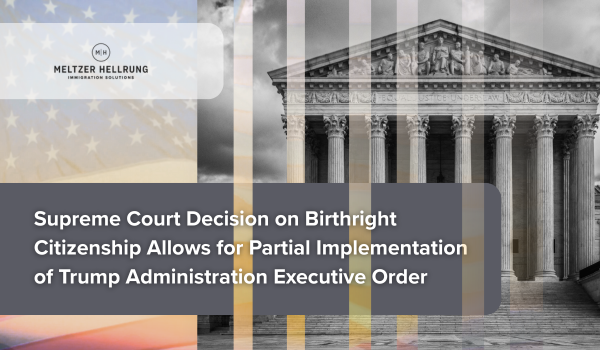The Issue: Mass SEVIS Terminations Threaten F-1 Students Legal Status
In recent weeks, thousands of international students were notified that their records in the Student and Exchange Visitor Information System (SEVIS) had been terminated—jeopardizing their legal ability to stay and work in the United States.
SEVIS, established after 9/11, is a system used to monitor foreign students and manage their visa compliance. It is also critical for maintaining employment authorization under Optional Practical Training (OPT) and Curricular Practical Training (CPT) programs.
In response to these widespread SEVIS terminations, multiple lawsuits were filed. Plaintiffs argued that the terminations violated both procedural norms and constitutional protections. On April 25, following several federal court rulings that questioned the legality of the terminations and ordered SEVIS records to be restored, U.S. Immigration and Customs Enforcement (ICE) announced it would reinstate affected students’ SEVIS records.
ICE Policy Shift: A Closer Look at SEVIS Reinstatement
Foreign students have begun receiving confirmation that their SEVIS registrations have been reinstated. ICE has signaled that it will reverse all wrongful SEVIS terminations in the coming days.
Importantly, ICE revealed that prior terminations were often based on entries in the National Crime Information Center (NCIC)—a database that includes criminal records. Many of the students impacted had minor infractions, such as misdemeanors, that would not typically affect immigration status but had been flagged in the NCIC.
Going forward, ICE will no longer use NCIC data as the basis for SEVIS termination. The agency also noted it is working on a new policy framework to guide future SEVIS compliance actions.
What This Means for Employers of International Students
For employers, this reversal provides significant relief. Students working under CPT, OPT, or STEM OPT who previously had their SEVIS records terminated are no longer at risk of losing their employment eligibility due to this issue.
However, some uncertainty remains. First, ICE has not provided assurances that all terminated SEVIS registrations have been reinstated retroactively, which is critical to ensuring that the students have no gaps in their immigration status. In addition, the U.S. Department of State has not yet confirmed whether it will reverse student visa cancellations linked to these SEVIS terminations. International students whose visas were revoked will still need to apply for a new visa if they plan to travel and re-enter the U.S.—a process that can be slow and uncertain.
Unlike SEVIS terminations, visa denials and revocations are not generally subject to federal court review. While the State Department has acknowledged that it is evaluating these cases, no timeline has been provided for resolution.
Recommendations for Impacted International Students
Until further guidance is issued, students with a revoked visa should avoid international travel. Traveling outside the U.S. could require applying for a new visa to return, which may not be feasible depending on the circumstances.
If you are an employer with affected international student employees—or a student needing to travel internationally—please contact your Meltzer Hellrung attorney to explore available options and develop a risk management plan tailored to your needs.


